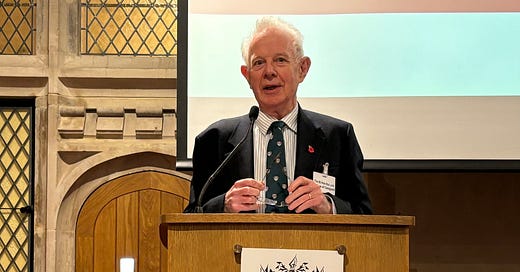Call to free IPP inmates
Prisoners should all be released within two years, says former chief justice.
All IPP prisoners should be “released within a two-year window”, a working group led by a former lord chief justice has recommended. In a report published yesterday by the Howard League for Penal Reform, Lord Thomas of Cwmgiedd says the proposals “provide a route to ending this grave injustice while protecting the public”.
More than 2,600 inmates who were sentenced to imprisonment for public protection before the penalty was abolished in 2012 were still in prison at the end of last year. Among them were more than 1,000 who had served the minimum term set by the court — sometimes several times over — but had never been released.
At present, the Parole Board must decide whether an IPP prisoner’s continued detention is necessary for the protection of the public. The working group proposes that the Parole Board should be asked set a date within a two-year window when the offender will be released. The board would also decide how to achieve that safely.
“We recognise the concern that this might lead to setting a date to release people who may still considered a risk to the public,” the report accepts. So it lists a number of safeguards:
Setting a date up to two years ahead in the most serious cases would provide a long period of time to enable professionals and statutory agencies to work together to plan and help the IPP prisoner prepare for a safe release.
Those individuals who present the greatest concerns about risk could be prioritised to receive more support while being prepared for release and managed safely in the community.
Decisions could be reviewed or set aside in certain circumstances.
The secretary of state can now ask the Parole Board to set aside a decision if certain conditions are met.
The review makes other recommendations dealing with recalls, rehabilitation. aftercare, reviews and appeals.
On the two-year release proposal, the working party addresses its conclusions to the public at large.
We know that the remaining cohort of people serving IPP sentences includes some people who have committed very serious offences. These include sexual offences, which have occasioned serious harm to victims. These people have now been punished for far longer than would have been the case if they had been sentenced after the abolition of the IPP sentence and received an extended sentence.
While we appreciate public concern at the nature of this offending, contrary to common perception this group of prisoners have among the lowest rates of reoffending of anyone leaving prison.
Every day, people who have committed serious crimes are released from prison at their custody end dates. People serving IPP sentences who have more than served their time for these same serious offences also must be released. Our proposals would see this achieved in the safest way possible for the public.
The working party is well aware that successive governments have not been willing to risk releasing prisoners who are thought to remain dangerous. But it says that if nothing is done there is a “real risk that many will languish in prison until they die”.





Anything that brings an end to this gross miscarriage of justice is to be welcomed. Surely some sort of triage system could be used so that those sentenced for the least serious offences are released as quickly as possible whilst they work out plans for the more serious offenders. But they will all need support upon release given how long they have served, some for quite minor offences.
My general view on sentencing is the Sentencing Guidelines are far too lenient, too much concerned with defining mitigating factors, and insufficient consideration of the nature and impact of the crime. So I'm a hard liner. That being said, right from the start I regarded IPP as a constitutional horror, The idea of imprisoning someone on the basis that they'll be kept inside until they can convince some bureaucrat that they'll behave is absurd and unjust. It was shameful it was introduced, and shameful it's still operating. This is in a system that released Colin Pitchfork on parole.